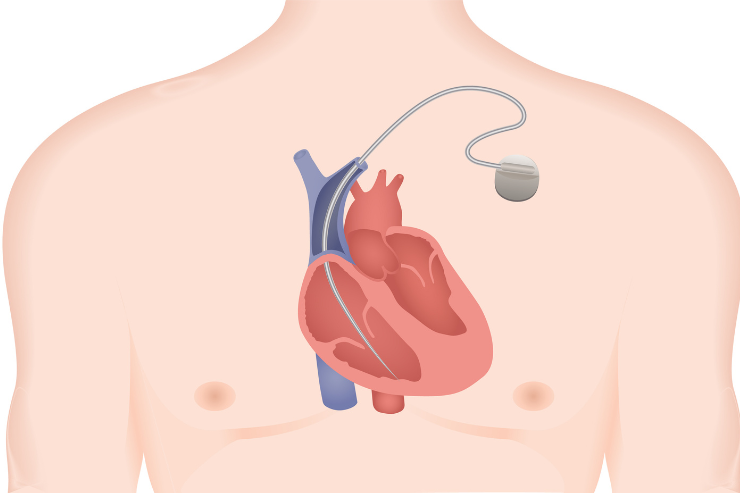ICD

An Implantable Cardioverter-Defibrillator (ICD) is a medical device designed to monitor and treat life-threatening heart rhythm disorders. It continuously tracks the heart’s electrical activity and delivers electrical shocks to restore normal heart rhythms when it detects potentially dangerous arrhythmias, such as ventricular tachycardia or ventricular fibrillation.
How Does an ICD Work?
An ICD is surgically implanted under the skin, typically in the chest area, with leads (wires) that are placed inside the heart chambers. The device continuously monitors the heart’s rhythm. If it detects an abnormal or dangerous rhythm, it can deliver one or more electrical shocks to the heart to restore a normal rhythm. Additionally, some ICDs offer pacemaker functions to correct slow heart rates.
Benefits of an ICD
- Life-Saving: Provides critical protection against sudden cardiac arrest and life-threatening arrhythmias.
- Continuous Monitoring: Constantly tracks heart rhythms and responds promptly to abnormal patterns.
- Improves Quality of Life: Reduces the risk of sudden cardiac death and helps manage symptoms of heart failure.
When is an ICD Used?
ICDs are typically recommended for patients who have a history of life-threatening arrhythmias, are at high risk for sudden cardiac arrest due to heart disease, or have certain types of cardiomyopathy. They are also used in patients with a previous history of cardiac arrest or sustained ventricular tachycardia.
Why Choose an ICD?
An Implantable Cardioverter-Defibrillator offers vital protection for patients at high risk of serious heart rhythm disturbances. Its ability to continuously monitor and treat abnormal rhythms helps prevent sudden cardiac death and supports long-term heart health, making it an essential tool in the management of severe arrhythmias.
